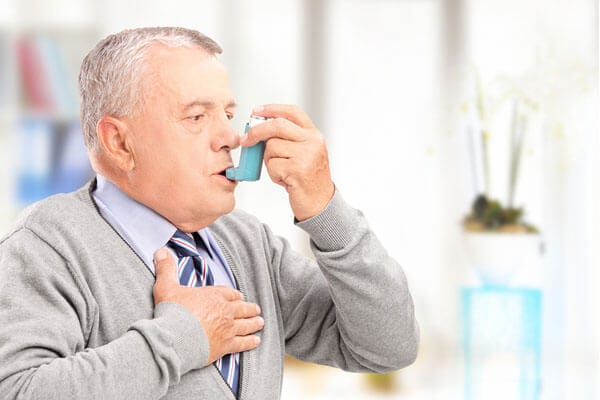 Respiratory conditions encompass a number of diseases that affect the lungs or their components, and they are characterised by impairment of the gas exchange process in the lungs. Respiratory conditions represent a significant burden on the Australian community, and in particular amongst older people. There are many respiratory conditions/diseases out there but the most common can be split up into OBSTRUCTIVE or RESTRICTIVE conditions.
Respiratory conditions encompass a number of diseases that affect the lungs or their components, and they are characterised by impairment of the gas exchange process in the lungs. Respiratory conditions represent a significant burden on the Australian community, and in particular amongst older people. There are many respiratory conditions/diseases out there but the most common can be split up into OBSTRUCTIVE or RESTRICTIVE conditions.
The 2 most common obstructive respiratory conditions are Asthma and Chronic Obstructive Pulmonary Disease (COPD)
Asthma: a common disease of the airways which causes the muscles in the airways to tighten and the lining to become swollen, inflamed and producing a sticky mucous. These changes cause the airways to narrow, making it difficult to breathe. Most people only have asthma when they inhale a trigger such as pollen or exercise without the correct preparation. With good management, people with Asthma live a normal, active life.
COPD: an umbrella term for a group of obstructive airways disorders including Emphysema and Chronic Bronchitis. A long-term condition which leads to damaged airways in the lungs, causing them to become narrower and more difficult for air to get in and out of the lungs.
A restrictive lung condition stops the lungs from expanding how they should, making it more difficult to breathe. 2 common restrictive conditions are Pneumonia and Pulmonary Fibrosis
Pneumonia: an infection of the lungs caused by bacteria or viruses. The alveoli (small air sacs in the lungs) in one or both lungs become filled with pus and fluids, which interferes with gas exchange and can make it difficult to breathe. Pneumonia can affect all ages but the elderly are particularly vulnerable.
Pulmonary Fibrosis: a respiratory condition where by scars are formed in the lung tissue, gas exchange is reduced and subsequently patients suffer from perpetual shortness of breath.
The symptoms you may experience with a respiratory condition vary between individuals, they may include:
- Shortness of breath (on exertion or at rest)
- Cough
- Coughing up mucus/sputum
- Wheezing
- Reduced exercise tolerance
- Fatigue
- Increased susceptibility to chest infections
- Chest pain
- Depression
Respiratory physiotherapy services can be used at all ages and all stages of respiratory disease. Traditionally physiotherapists aid the mobilisation and removal of secretions from the lungs, however this is only one of the many problems physiotherapists can address:
- maintain/improve exercise tolerance
- improve function and activities of daily living
- control breathlessness and reduce work of breathing
- improve the efficiency of ventilation
- mobilise and aid the expectoration of secretions (mucus/sputum)
- improve knowledge and understanding
- reduce pain
- improve mobility
If you suffer from an acute or chronic respiratory condition and would like help managing your symptoms and improving your function, give My Mobile Physio a call now.




 CALL US:
CALL US: